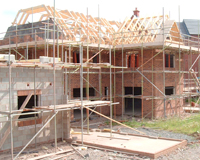 The introduction of the community infrastructure levy has led to a significant fall in the provision of affordable housing, with London the worst-hit region.
The introduction of the community infrastructure levy has led to a significant fall in the provision of affordable housing, with London the worst-hit region.
Research by JLL found that the 37 local authorities that had set CIL rates by the end of 2013 reported a 14.5% fall in the number of affordable homes delivered last year.
The six London boroughs to introduce CIL before the end of 2013 registered a 37% decline in affordable housing delivery in 2014. Developers are also obliged to pay mayoral CIL to help pay for Crossrail.
The decline in affordable house building in areas with CIL schedules comes against the backdrop of an overall increase in the number of affordable houses built across the country last year.
The latest department for Communities and Local Government figures show that total affordable housing delivery in 2014 rose by 11.5% across England and Wales and by 21% across London.
Alix Green, director of residential at JLL, said: “Every development has a limit as to how much cost it can accommodate before its viability is adversely affected.
“In the instance that one element of financial contribution is fixed, as is the case with CIL, and the only other element, affordable housing, is subject to negotiation, then the latter will suffer in some instances.”
British Property Federation chief executive Melanie Leech added: “In some places CIL charges are simply still being
set too high. This makes sites unviable and the inevitable fallout from this is that affordable housing delivery takes the hit.”
Nick Cuff, land director at developer Pocket, said: “When the infrastructure contribution is a clear offer, it often works better with developers because they know what they are funding. But at the same time affordable housing, which is arguably more important, is squeezed.”
CIL came into force in 2010 to help pay for infrastructure, but the differing rates set by authorities, inflexibility in their payment and the speed of infrastructure provision have been labelled significant weaknesses.











